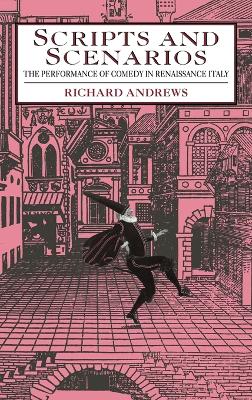The Italian Renaissance produced a new type of stage comedy, experimental and even revolutionary in its time, by copying and updating the dramatic formats of Plautus and Terence from ancient Rome. These scripted comedies, first written and performed for private audiences, ranged in tone from sober moralism to scurrilous farce, and influenced European dramatists from Shakespeare to Molière and Lope de Vega. This book gives an account of how the new dramatic experiment was born and grew, moving from closed courtly audiences to a wider public. It examines the performing values of these scripts rather than their literary qualities, in order to demonstrate their links with improvised commedia dell'arte, and thus explores a crucial phase in the development of European theatre. It will be of interest to scholars and students in both theatre history and Italian studies.
- ISBN13 9780521353571
- Publish Date 22 April 1993
- Publish Status Active
- Out of Print 11 July 2022
- Publish Country GB
- Imprint Cambridge University Press
- Format Hardcover
- Pages 316
- Language English
